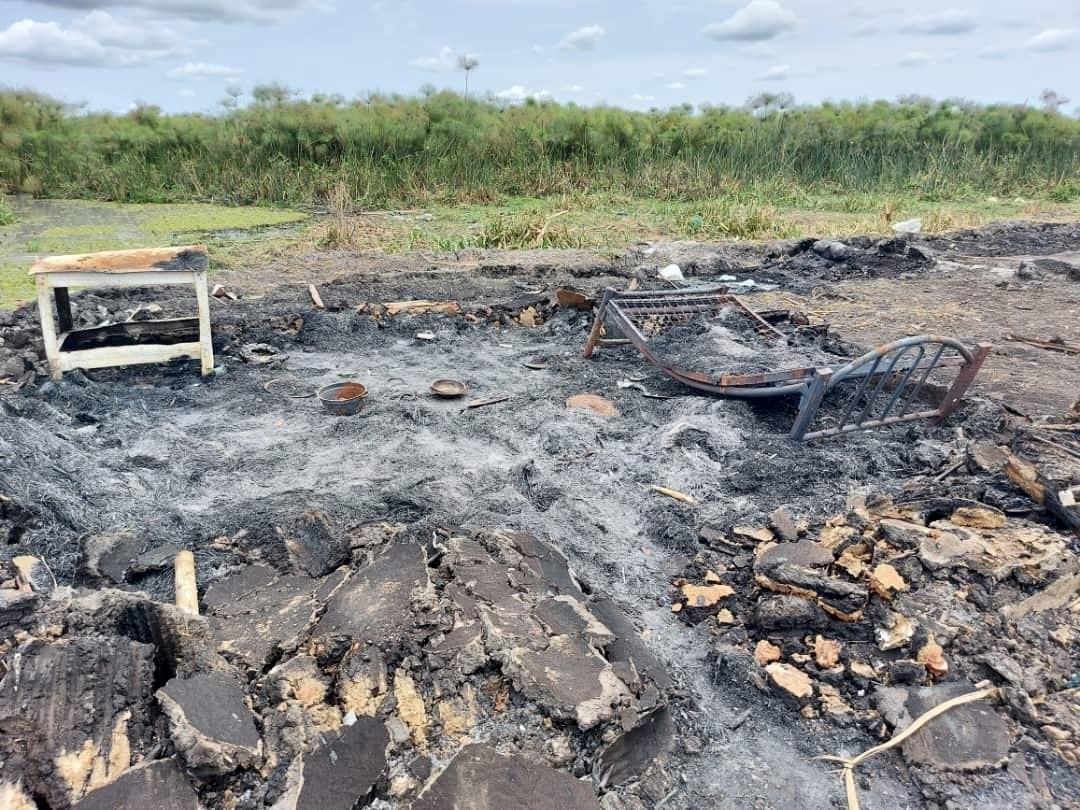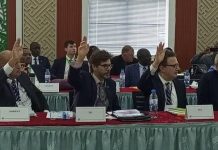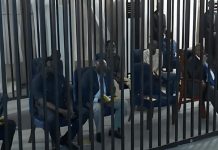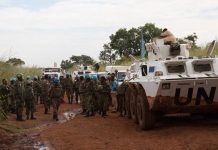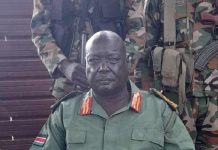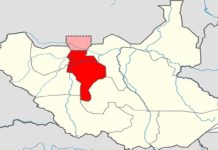Kitab Unango and Ali Osman
Africa-Press – South-Sudan. South Sudan and its people have been in a state of perpetual conflict since 2013, barely two years after independence, threatening every aspect of life in the country.
After the collapse of the 2015 compromised peace deal, it was revitalised in 2018 to end the war and its subsequent impact on the population.
In recent months, the country’s humanitarian situation has been exacerbated by growing armed and inter-communal violence in some parts of South Sudan, including the greater Upper Nile region and parts of the Equatoria and Bah el Ghazal regions.
Most of the provisions of the revitalised peace agreement, critical to overall sustainable peace progress, including Chapter Two of the security arrangement, remain pending.
In early August, the parties agreed on a roadmap that extended the transitional period for 24 months to allow time to complete all the outstanding tasks and pave the way for a peaceful, credible, and fair election by December 2024.
But some of the deadlines have been missed, including the redeployment of the already graduated 53,000 unified forces and the commencement of registering, cantoning, screening, training, graduating, and deploying the second phase of the pace forces.
One of the most important and complex aspects of security arrangements is the unification of forces and their integration or absorption into a national army. Their impact on the process of addressing the insular causes of conflicts and achieving sustainable peace as a strategic goal has lagged behind the schedules and dates that were agreed upon between the peace parties in South Sudan.
It is also worth noting that the coalition government has yet to implement this critical provision, while armed violence and inter-communal violence have raged.
According to the United Nations High Commissioner for Refugees (UNHCR), at least 20,000 people have fled their homes due to the recent violence in the greater Upper Nile region. More than 3,000 crossed the border into neighbouring Sudan.
“I am afraid our leaders have remained silent, and the road map will yield nothing if they are not serious about what they have agreed unless there is outside pressure from IGAD or the AU and the United Nations Security Council,” said Ter Manyang Gatwech, the executive director of the Center for Peace and Advocacy, and Chairperson of the Civil Society Coalition on Defense of Civil Space.
Mr. Manyang said, “We are heading to the dry season, and the issue of inter-communal fighting is going to happen, but all in all, what is needed is for South Sudan to have total peace so that everyone can enjoy.”
This shows the importance of resolving conflicts, in all their forms, except those between the government and the opposition, or those between local communities, in the progress of the peace process and the transition of South Sudan to a state of stability.
Little hope on horizon
The United Nations reports note that resolving African conflicts and building peace relies heavily on political agreements between political and military elites, but like South Sudan, most African agreements focus largely on elite power and resource-sharing arrangements.
The societal dynamics that initially fueled the violence are often ignored. That is when peace agreements are signed without regard to the true nature of the conflict or its origins.
But the ministry of peacebuilding, tasked with the responsibility of propagating peace through the reconciliatory conferences, continues to face financial and logistical challenges in implementing its mandate.
The ministry has developed a strategic framework that encompasses the management of political disputes, public safety, and security, transitional justice, and reconciliation, women and youth agendas, as well as conflict prevention and social cohesion.
“Our biggest challenge is resources,” Pia Phillip Michael, undersecretary of the ministry of peacebuilding, said. “We need resources to unpack our strategic framework, supporting conferences among the people, states, and communities.”
Furthermore, the insurgency of the National Salvation Front, led by Thomas Cirillo, a member of the South Sudan Opposition Movement Alliance (SSOMA) in the Equatoria region, continues to add more layers to the growing insecurity in the country.
Not only that, but the government is also yet to devise a viable solution for the farmer–herder conflict in Central Equatoria State that has claimed several lives and destroyed properties and livelihoods.
The conflict, which has been characterised by the influx of livestock plundering, kidnapping of children, and revenge killings, has been difficult to resolve despite several presidential orders to vacate the farmlands in Equatoria.
Meanwhile, the turbulent security situation in the country casts a dark shadow over the future of a peaceful political transition in accordance with the concluded peace agreement, as many South Sudanese express their fears that the country would have been able to cross towards holding elections in 2024.
Not only that, but fighting between Gen. Simon Gatwech Dual’s SPLA-IO Kit-Gwang forces and those of Gen. Johnson Olony’s Agwelek has continued despite the fact that the two factions signed deals with the government to become part of the South Sudan People’s Defense Forces (SSPDF) in 2021.
All these challenges have posed the question of what difference 2023 would make in regard to peace implementation, peaceful coexistence among societies, and overall socio-economic development.
Activist Manyang again pointed out that the government should reach out to the pulled-out groups. “We need everybody in South Sudan, including all the stakeholders, to come in and participate in the peace progress in this country.”
He added, “If our leaders do not have the political will, I do not see anything happening in 2023. If the forces are not yet deployed, which means that the leaders do not want to implement the peace agreement, it also means that in 2024 we may not have elections”.
“There are lots of things that are supposed to be done, like the constitution-making process, which is still ongoing, and now the parliament is complaining, and if they are complaining, it means that the country is not moving in the right direction. “So this is a concern,”,
Source: The City Review South Sudan
For More News And Analysis About South-Sudan Follow Africa-Press

